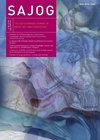Does adding coenzyme Q10 to dehydroepiandrosterone sulphate positively impact fertility outcomes in young, poor responder infertile women undergoing antagonist protocol for IVF/ICSI cycles?
IF 0.4
Q4 OBSTETRICS & GYNECOLOGY
South African Journal of Obstetrics and Gynaecology
Pub Date : 2024-07-17
DOI:10.7196/sajog.2024.v30i1.1595
引用次数: 0
Abstract
Background. One of the biggest issues in reproductive medicine is treating women with low ovarian reserves or a poor ovarian response (POR) to stimulation. Oxidative stress was suggested as one of the major contributors to POR. However, the pathophysiology remains unknown. Focusing on certain subpopulations within the diverse group of poor responders may help determine the best therapy for these patients. Objective. To investigate the effect of adding coenzyme A Q10 to dehydroepiandrosterone (DHEA) in young, poor responder infertile females undergoing in vitro fertilisation (IVF)/intracytoplasmic sperm injection (ICSI) cycles. Methods. One hundred and sixty-eight females with poor ovarian response (Poseidon Group 3) from multiple centres were randomly divided into two groups. The first group received DHEA orally along with coenzyme 10, while the second group received only DHEA. Both groups underwent controlled ovarian stimulation. Results. There was a significant improvement in the quality of oocytes and the number and quality of embryos transferred in the coenzyme A Q10 group. However, no significant differences were observed in other parameters between the groups. Conclusion. In young, poor-responder women with decreased ovarian reserve, pretreatment with CoQ10 enhances oocyte and embryo quality and boosts ovarian response to stimulation. An improvement in clinical pregnancy and live birth rates may be possible.在硫酸脱氢表雄酮中添加辅酶Q10是否会对接受试管婴儿/卵胞浆内单精子显微注射周期拮抗剂方案的年轻、反应不佳的不孕妇女的生育结果产生积极影响?
背景。生殖医学的最大问题之一是治疗卵巢储备功能低下或卵巢对刺激反应不佳(POR)的妇女。氧化应激被认为是导致 POR 的主要因素之一。然而,病理生理学仍是未知数。重点关注反应不佳患者中的某些亚群,可能有助于确定这些患者的最佳治疗方法。目的:研究在脱氢表雄酮(DHEA)中添加辅酶A Q10对接受体外受精(IVF)/卵胞浆内单精子注射(ICSI)周期的年轻不良反应不孕女性的影响。来自多个中心的 168 名卵巢反应不良的女性(波塞冬第 3 组)被随机分为两组。第一组口服 DHEA 和辅酶 10,第二组仅口服 DHEA。两组均接受控制性卵巢刺激。结果显示,辅酶A Q10组的卵母细胞质量、移植胚胎的数量和质量均有明显改善。然而,两组之间的其他参数没有明显差异。对于卵巢储备功能低下的年轻女性,辅酶Q10可提高卵母细胞和胚胎质量,增强卵巢对刺激的反应。临床妊娠率和活产率可能会有所提高。
本文章由计算机程序翻译,如有差异,请以英文原文为准。
求助全文
约1分钟内获得全文
求助全文
来源期刊

South African Journal of Obstetrics and Gynaecology
Medicine-Obstetrics and Gynecology
CiteScore
0.40
自引率
0.00%
发文量
5
审稿时长
15 weeks
期刊介绍:
The SAJOG is a tri-annual, general specialist obstetrics and gynaecology journal that publishes original, peer-reviewed work in all areas of obstetrics and gynaecology, including contraception, urogynaecology, fertility, oncology and clinical practice. The journal carries original research articles, editorials, clinical practice, personal opinion, South Africa health-related news, obituaries and general correspondence.
 求助内容:
求助内容: 应助结果提醒方式:
应助结果提醒方式:


